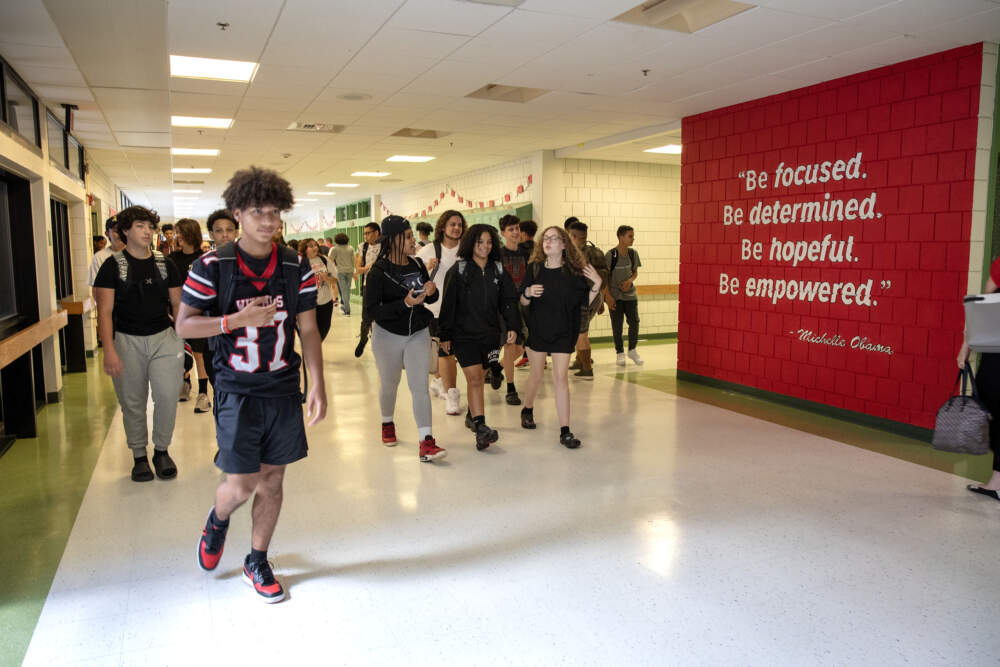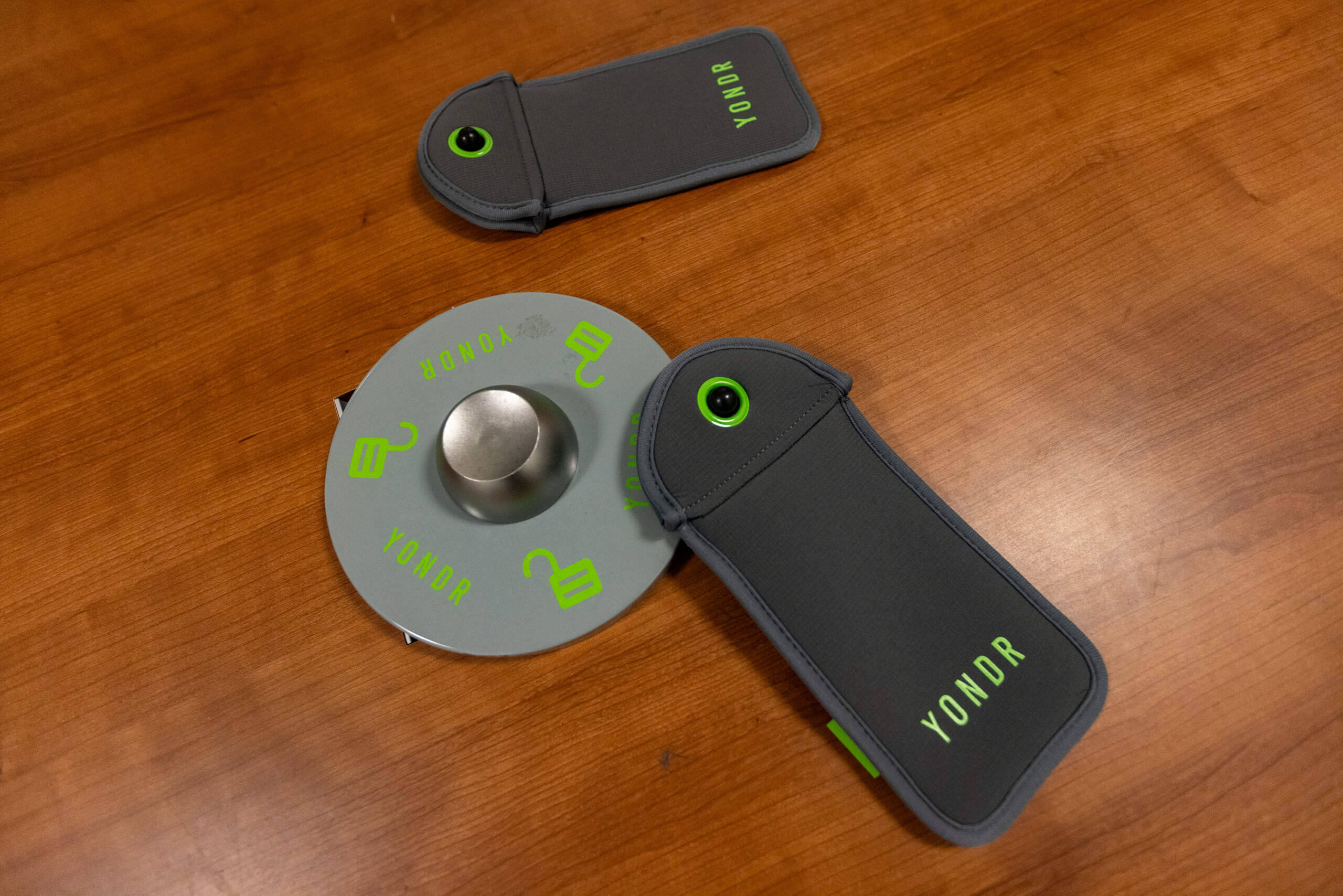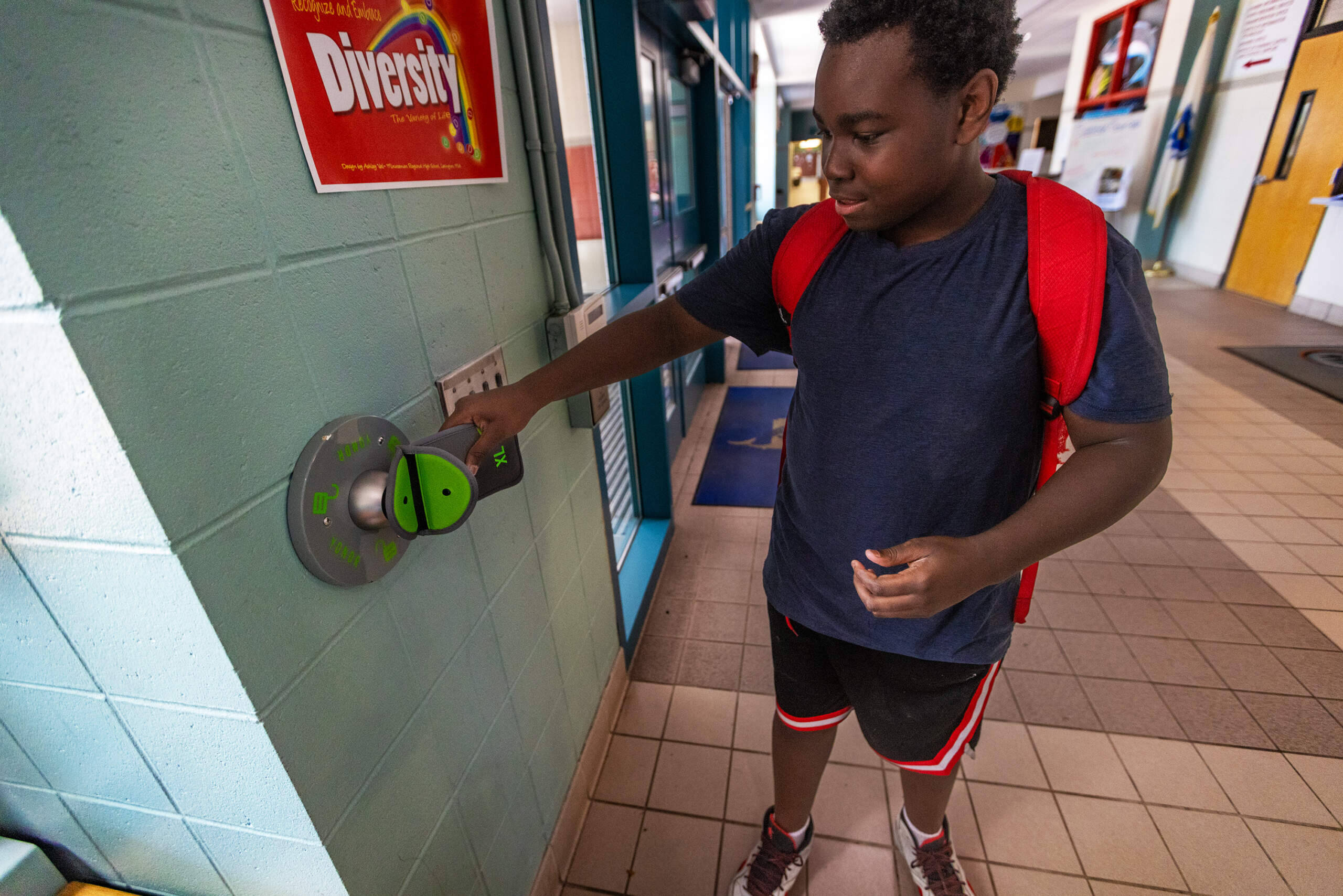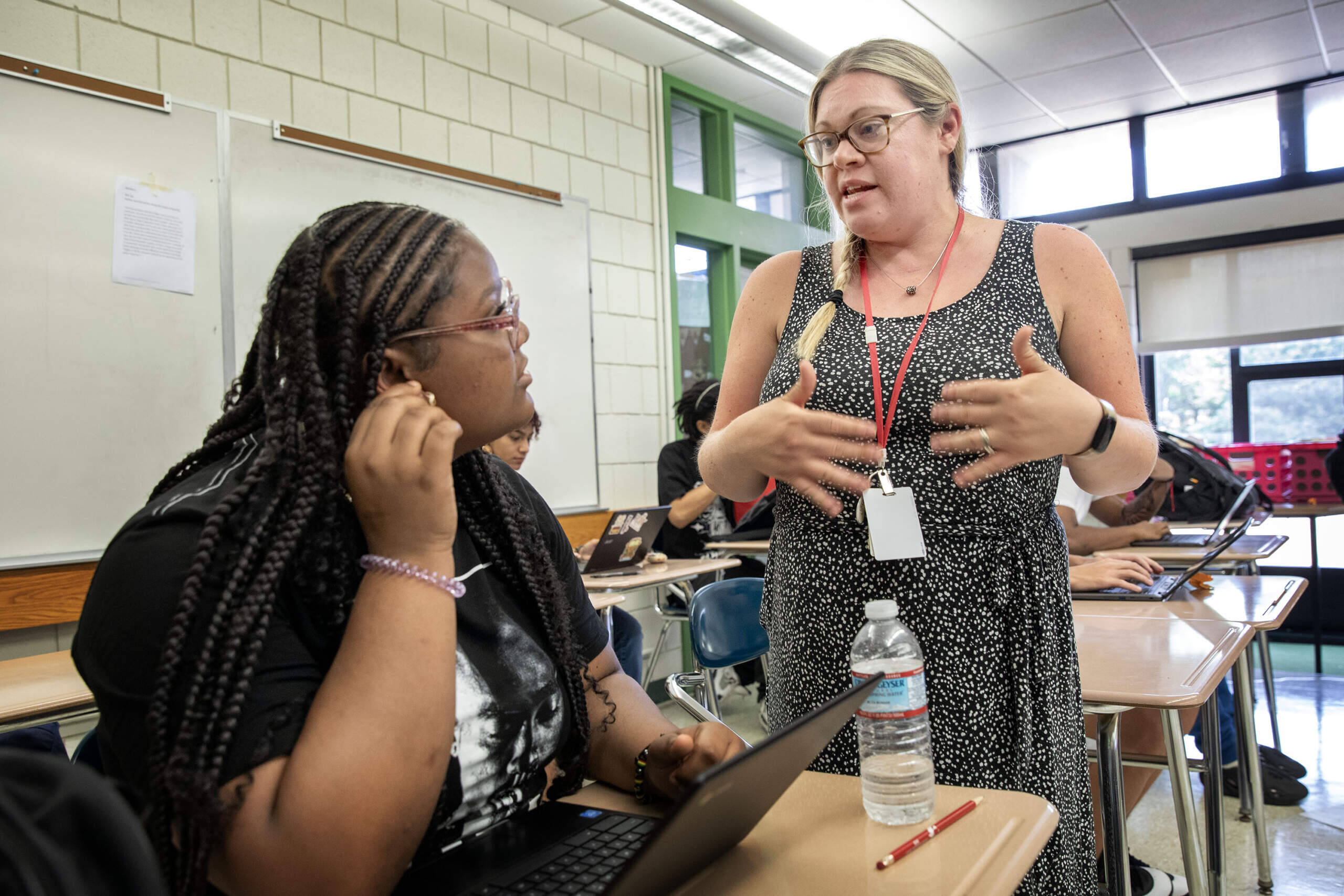Advertisement
Why some Mass. schools made the call to lock up student phones
Resume
At the end of a recent school day at Salem High, students walked with their heads up and eyes forward as the sound of conversation echoed through the cinderblock hallways.
It's a far cry from what was the usual school day scenario especially after the pandemic: Junior Rocco Ryan said he'd typically travel the halls looking down at his cellphone, sometimes bumping into his peers.
"Last year, when you were in the hallway, everyone was on their phone looking down," he said.
This year, school district officials in Salem are trying something new to boost student engagement and help break their dependence on cellphones during school hours.
The district has purchased locking sleeves which, when clasped shut, prevent use of the mobile phone sequestered inside. Students can access phones only during lunch and after the day ends. The pouches, designed by a company called Yondr, can only be unlocked using one of several wall magnet devices placed around the school building.

Salem High School is one of dozens of schools in Massachusetts implementing strict bans on cellphones and experimenting with new devices to help students break their smartphone addictions. Others schools using the pouches include Chicopee High School and the Elliot K-8 School in Boston. In March, Concord-Carlisle High School began requiring students to store their phones in pocket caddies during each class period.
Not all of Salem High's students were happy with the new policy.
"I was not a fan," said Ryan. "I didn't want to go to school and I was like, 'This is going to be terrible.' "
Fellow junior Taliyah Perrin said some of the strongest outrage came from older students.
"The seniors are like, 'this is against our freedom,'" she said. "'We are adults, we can use our phones' and, 'this is an abuse of power.'"
But after just a week of use, Ryan quickly changed his mind.
"The fact that you have no choice to go on your phone, you have to pay attention in class," he said. "It's going to lead to more success for me, so I don't mind it at all now."
And Perrin said she's gotten to know more classmates so far this year.
"I'm able to talk to people that I don't normally talk to," she said. "Without my phone I've been reading books more, too, and just enjoying school more."
That increased focus and socialization is in line with what district leaders saw after similar cellphone pouches were instituted last year in the middle school. Officials noticed a positive effect once Collins Middle School piloted the pouches last school year.
Guidance counselor Brad Maloon said students weren't socializing with each other as much in the halls after students returned from the COVID-19 pandemic-related school building closures. He described phones as "a social crutch" for kids.
"There was a definite dependence when the students got back," Maloon said. "We were saying we need to get them back on learning full time and not thinking about what text message or Snapchat notification is going to go off in your pocket."
But after the middle school students started locking their phones in these pouches, the change in student behaviors was dramatic.
"People were actually interacting with each other," said Collins Middle School eighth grader Tyri Bascomb. "If it was during lunch, they'd say 'hi' and start a conversation."

Salem purchased the pouches from Yondr, which has been around for about 10 years. The company started small, mostly serving schools in New York City, but also caters to music events and other spaces. After the pandemic, demand among school districts shot up, said CEO Graham Dugoni.
"It feels like we're running 100 miles an hour to keep up," Dugoni said.
More schools in Massachusetts and elsewhere are considering these devices and others like it because of the growing body of research that shows a correlation between cellphone screen time and teen self-esteem.
According to the U.S Department of Health and Human Services, about 95% of teens nationwide are on social media, and about a third report being on social media "almost constantly."
In May, U.S. Surgeon General Vivek Murthy released an advisory about the effects of social media on youth mental health.
“There is growing evidence that social media use is associated with harm to young people’s mental health,” Murthy said in a May 2023 press release that accompanied the advisory.
In February, the American Psychological Association published a study showing that when teenagers cut the time they spent online by half, their body image and self esteem improved. And a 2017 study published in the Journal of the Association for Consumer Research showed that even just the presence of a cellphone in someone's plane of vision "may reduce available cognitive capacity," in part because of temptation to use it.
While the cellphone pouches could technically be pried open without the school's wall magnets, Salem Public Schools superintendent Stephen Zrike said he's hopeful that rules around using the pouches will help keep that at bay. Starting this school year, if an educator sees a student's phone out of its pouch during the day, they get one warning. On the second offense, the phone goes to the front office. After that, school officials will get parents involved and confiscate the student's phone.
The restriction on cellphone use hasn't been met with total favor. One lingering concern among some parents has to do with reaching their child in the event of an emergency at school.
"You want to be able to contact your kids," said Melissa Taylor, the parent of an eighth grader. "Parents want to be able to hear from their child if it is a last moment possibility."
There's no statewide mandate in place, but state education leaders have encouraged districts to keep experimenting. In July, the Massachusetts Department of Elementary and Secondary Education announced it would distribute up to $800,000 in grants to support districts interested in implementing cellphone ban programs.
To date, 78 of about 400 Massachusetts districts have applied for funding, including Salem.

Teachers at Salem High welcome the policy, saying it's helped improve concentration.
"Trying to compete with technology and everything that comes with a cellphone was really hard, and now I feel like I'm just not competing with that," said English Language Arts teacher Abby Sherwood.
Kids seem less distracted by having to keep up with the constant narrative and conversation happening in their online life, she said.
"They're a lot more focused, and the change has been pretty incredible."
This segment aired on September 20, 2023.
